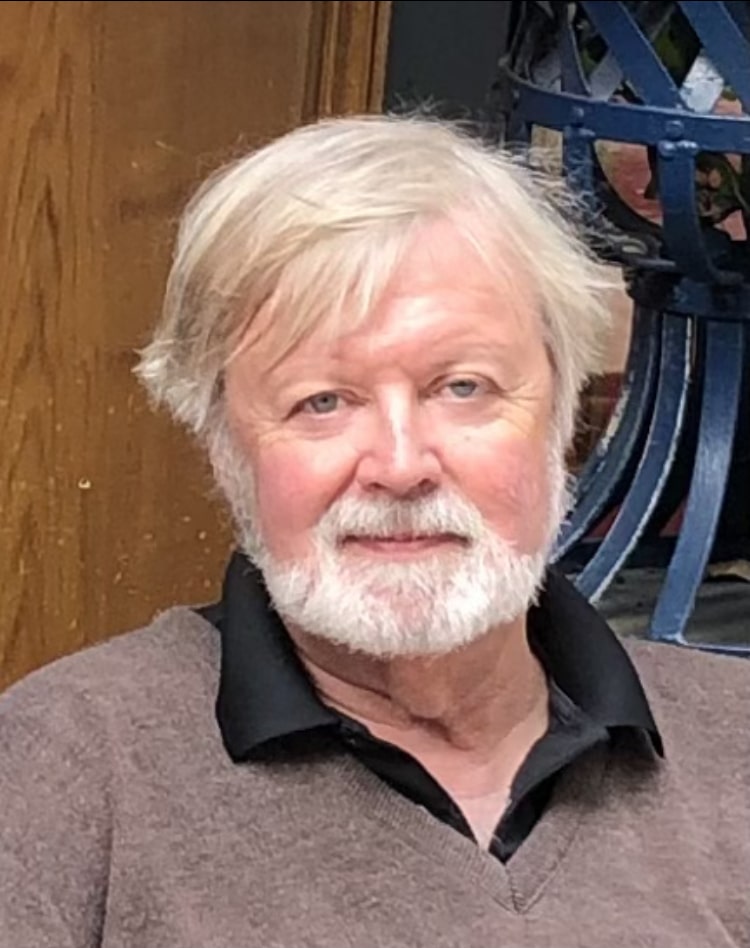Martin Hegwood and I became fast friends when we were students at Ole Miss. We were both from Pascagoula, but we hadn’t really known each other down here at that time (I’m three years older).
Once we got together in Oxford, Martin and I formed a friendship that has now been close and enduring for over 50 years. We had many commonalities from the start—appreciation of history, enjoyment of sports, shared sense of humor, penchant for having a good time—none stronger than a love for the written and spoken word.
Therefore, when Martin called me a few weeks ago and said, “Rich, I won the Faulkner Award,” I was thrilled but not surprised.
Let me tell you about Martin’s accomplishment. The William Faulkner Literary Committee, based in New Albany, Mississippi, has presented the William Faulkner Literary Competition for the past 25 years. Obviously named after Mississippi’s own Mr. Faulkner, who is widely considered the greatest American novelist of the past century, the resulting awards represent one of the most prestigious and highly contested such platforms in the United States. This past year, there were 353 entries from 43 states and ten foreign countries, bringing together works from the brightest aspiring writers in the world. Our guy, Pascagoula’s own Martin Hegwood, has reached this singular pinnacle through his as yet unpublished novel, Memphis. How did the young Mr. Hegwood begin on this path?
“I don’t recall a particular moment when I realized I wanted to be a writer,” said Martin, who now splits time between homes in Canton, Mississippi, and Pascagoula. “My desire to write came from my desire to read. Actually, I have more than a desire to read, I have a need. Writing comes from reading, always.”
Those needs to read, and eventually the desire to write, obviously started here in Pascagoula. “When I was about five years old, I was taught to read mainly by my grandmother, who lived next door to us on River Road,” remembered Martin. “She read the comic strips to me every day. Then, we would go to the city library, the one that was in the old wooden building on Krebs Avenue—it looked like the Library of Congress to me. At Lake Elementary, I loved those little orange hardback biographies of American heroes. Then I moved on to the classics like Treasure Island, plus those great Hardy Boys mysteries.”
Those reading beginnings sound very familiar to me. Martin continued on when discussing the effect his hometown had on his eventual writing pursuits. “The Pascagoula in which I grew up in the 50s and 60s was a great atmosphere for the seeds of writing to grow,” he points out. “It was a protected environment, yet large enough to experience and observe all the nuances of human behavior without being overwhelmed by the noise and fast-paced existence of a big city. I hobnobbed with the sons and daughters of shrimpers, welders, and mechanics, as well as the children of the doctors, merchants, and bankers. You can’t do that if you grow up in Boston or Atlanta or Houston.
“I’d also say that Pascagoula’s public school system was as good as any in that day. I have a respected good friend who says that the Pascagoula school system in the 1960s gave a student the equivalent of a bachelor’s degree today. When it came to English, PHS gave me a background that let me glide through English comp and gave me an introduction to American and English Lit that made my college level courses in the same a breeze. So, yes, the Pascagoula public school system gave me all the tools I needed to become a writer. Everything after has just been an add-on.”
Midway through his career as a lawyer, lobbyist, and valuable state employee with the Secretary of State’s Office, Martin decided to put those tools to a specific use. The results were a wonderful series of crime novels featuring the redoubtable Jack Delmas, a Missississippi Gulf Coast detective.
I had the honor and pleasure of serving as a reader for Martin’s first novel, Big Easy Backroad (1999). When we worked on that one together, I told him, “Man, you have something here”. Soon to follow were The Green Eyed Hurricane (2000), Massacre Island (2001),and Jackpot Bay (2002).
Clearly, then, Martin’s Gulf Coast upbringing played a role in setting, time, and place for these novels. Now, as he brings forth Memphis, his Ole Miss background and time spent in North Mississippi have come into play.
“In this novel, a beauty pageant winner from the poor side of a little cotton town in the Delta lands a job in Memphis as a TV weather girl and becomes a local celebrity,” said Martin. “Her father and grandfather were notorious gamblers, and ran a casino. Soon, the city’s most eligible bachelor, from the most powerful family in the region, falls for our Delta belle. Going forward, family backgrounds, class structure, and intrigue are bound to follow.”
Whoa. I don’t know about you, but I can’t wait to get my hands on Memphis when it is eventually published. For now, I’ll continue to enjoy my friendship with the author, a good man and a damned talented writer. Mr. Martin Hegwood, we are all so proud to count you as a fellow Pascagoulan.
Richard Lucas may be contacted at rblucas17@gmail.com.




